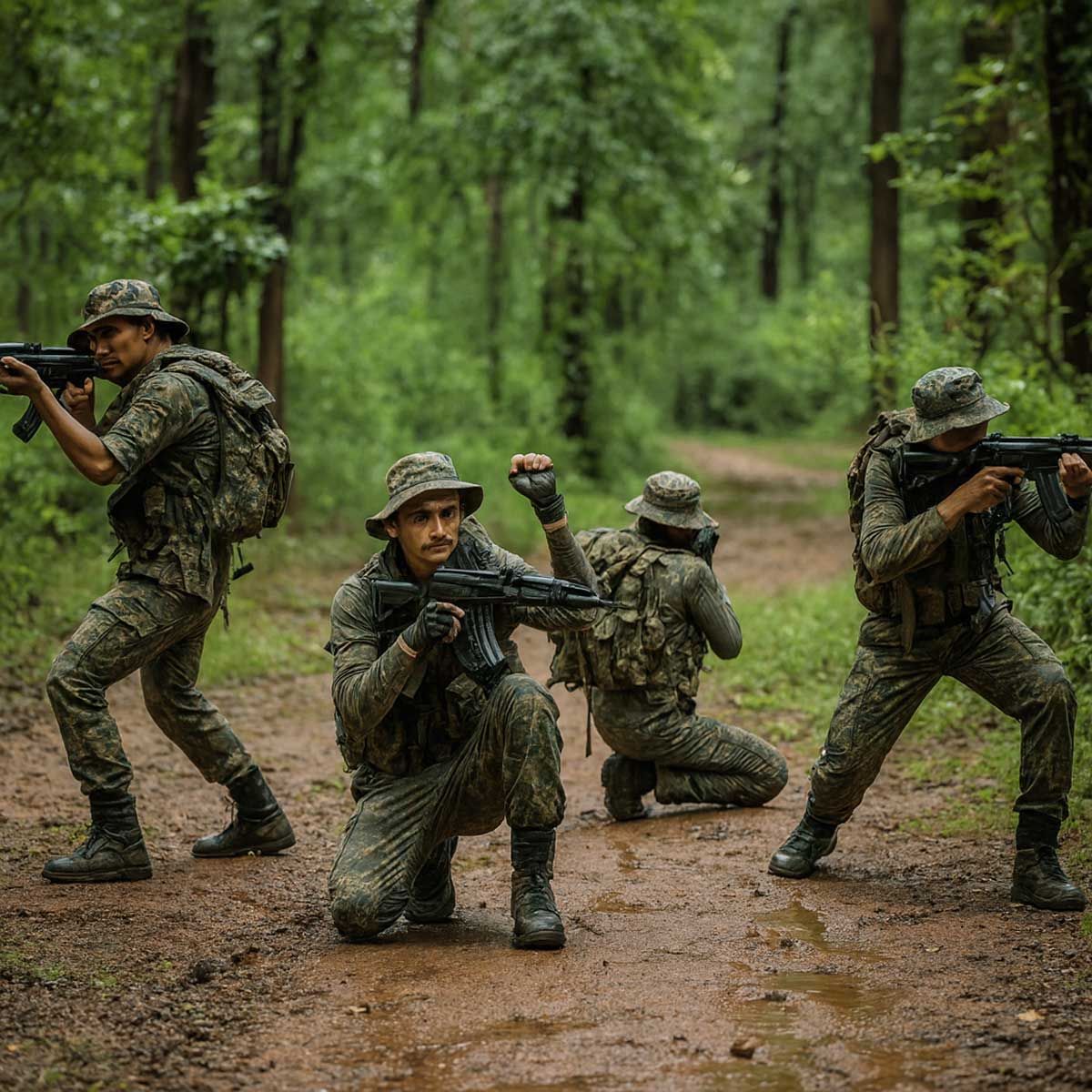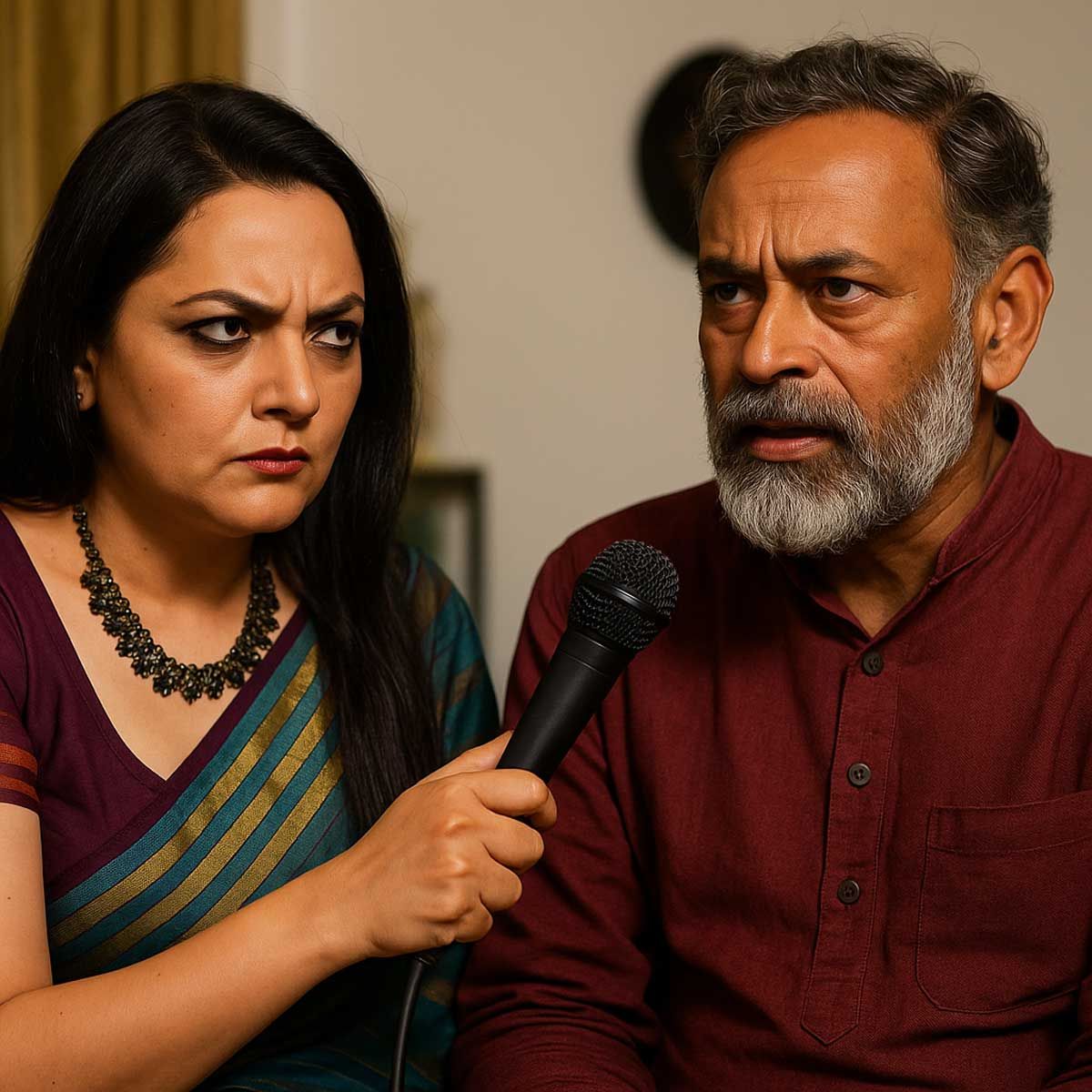More Coverage
Twitter Coverage
Satyaagrah
Written on
Satyaagrah
Written on
Satyaagrah
Written on
Satyaagrah
Written on
Satyaagrah
Written on
JOIN SATYAAGRAH SOCIAL MEDIA
"Diving deep into the Congress-China connection reveals a web of ties": Jairam Ramesh's Huawei affinity, the Gandhis' MoU with CCP, and closed-door meetings; such undisclosed affiliations raise questions about transparency and India's sovereignty

A memorandum of understanding (MoU) between two political parties isn’t typically the stuff of intrigue, unless those parties are India’s Congress Party and China’s Communist Party (CCP). The nature of this particular MoU was elevated by its signatories: Rahul Gandhi for India's Congress and Xi Jinping for China, the latter of whom was then the Chinese vice-president. Adding to the curious nature of this agreement was the presence of Rahul’s mother and then party president, Sonia Gandhi, who stood witness.
|
|
It’s interesting to note that agreements like these aren't signed daily. And the presence of key figures on both sides underscores the significance that was attached to this particular piece of paper. What was the intent behind this agreement? What mutual goals or understandings were the two parties coming together to achieve? The specifics remain clouded, but the symbolic weight is undeniable.
Enter the Bharatiya Janata Party’s (BJP) Rajya Sabha MP, Mahesh Jethmalani. On 8th August, Jethmalani took to social media to cast a spotlight on the mysterious ties that seemed to exist between the Congress Party and the Chinese tech behemoth, Huawei. He drew attention to Neville Roy Singham, who held the prominent role of Chief Technical Officer at Huawei from 2001 to 2008. Huawei isn't just any company. It's a global telecommunications giant that has, time and again, been flagged by numerous governments due to alleged security concerns linked to its ties with the CCP.
Jethmalani's exploration didn't stop at Singham's role in Huawei. He delved deeper, recalling that in 2006, Congress leader Jairam Ramesh released a book titled 'CHINDIA'. In it, Ramesh appeared to be quite the Huawei enthusiast, praising the company extensively. Ramesh's affinity for the tech giant continued throughout his tenure as the Environment Minister in UPA 2. This timeline interestingly coincides with Singham's association with Huawei. Jethmalani, connecting the dots, then posed a crucial question: Were the Gandhis in touch with Singham during his time at Huawei?
|
Further diving into this tangled narrative, on 5th August, The New York Times reported a convoluted web involving Neville Roy Singham. The publication revealed Singham’s penchant for bankrolling various news platforms across the globe, seemingly to echo Chinese propaganda. One such platform was the India-based outlet, NewsClick. The outlet had, on multiple occasions, propagated views in line with CCP’s stance.
But Singham's ties with China weren't restricted to his tenure at Huawei or his media ventures. Reports suggest that he has been a vocal proponent of China’s economic model. Furthermore, in 2010, at the Fifth Agile Software Development Conference, Singham elaborated on how he had influenced several Chinese corporate giants.
The crux of the matter, underlined by Jethmalani’s assertions and supported by various investigative reports, hints at a complex web of relationships, influence, and perhaps even mutual benefits. The nexus between politics and business, particularly in the international arena, is hardly novel. Yet, when the players are as significant as the Congress Party, the CCP, and a global tech powerhouse like Huawei, the narrative takes on a gravitas that's hard to dismiss. As these connections continue to unravel, one can only hope for transparency and clarity in the days to come.
|
Jairam Ramesh, Huawei, and the Indian Political Landscape
Jairam Ramesh, an influential figure in the Congress Party, has a history that intriguingly intertwines with China's tech giant, Huawei. Earlier this year, BJP's Rajya Sabha MP, Mahesh Jethmalani, probed deeper into Ramesh's connection with the company. Drawing from Ramesh’s 2005 book, “Making Sense of Chindia: Reflections on China and India”, Jethmalani raised eyebrows with excerpts that painted a favorable portrait of the controversial tech giant.
In his book, Ramesh articulated the potential for mutual benefits in the India-China relationship, far from the common adversarial narrative. It's curious, though hardly scandalous, that Huawei found mention four times in the concise 130-page volume. What’s interesting, however, is Ramesh’s seeming enthusiasm for the company at times when the Indian establishment expressed reservations.
He highlighted Huawei's burgeoning operations in Bangalore and how the firm’s expansion faced hurdles from Indian security agencies.
But Ramesh's fascination didn't just remain confined to the pages of his book. In 2010, during his China visit, Ramesh, then the Minister of State for Environment and Forests, criticized India's "alarmist and paranoid" policies towards Chinese projects. He went on record voicing his displeasure over the Indian Home Ministry’s apprehensive stance towards Chinese companies like Huawei, which was under scrutiny for security reasons.
|
This association with Huawei did lead to some friction at the national level. Manmohan Singh, the then Prime Minister, reportedly had concerns over Ramesh's vocal support for Huawei's investments in India, highlighting the divisive nature of the issue.
Meanwhile, another thread connected the Congress Party with China: the 2008 MoU signed by Rahul Gandhi and Sonia Gandhi with the Communist Party of China.
This wasn't just a regular diplomatic exercise; the agreement allowed both parties to share insights on critical regional and global issues. The very act of signing such an agreement implies a degree of trust, respect, and perhaps mutual ambition.
The presence of Xi Jinping as the signatory for China marked the importance of this MoU. It wasn’t just another bureaucratic formality; it carried weight. Additionally, in the same year, the Gandhi family - Sonia, Rahul, and even Priyanka with her family - visited Beijing, a gesture hinting at the depth of their relationship with Chinese leadership.
|
The timing of this MoU was notable. The Left parties in India, traditionally more aligned with China's ideology, were showing distrust towards the Congress-led UPA-1 government. Yet, China, fully aware of India's political intricacies, sought to bolster ties with Congress and especially with the influential Gandhi family.
This narrative paints a tableau of intrigue and interdependence. The mutual interests, personal meetings, and shared ambitions of the Congress Party and the CCP make for a compelling narrative, and while the exact nature of these relationships remains cloudy, their significance in shaping the political and tech landscape of both countries is indisputable.
 Support Us
Support Us
Satyagraha was born from the heart of our land, with an undying aim to unveil the true essence of Bharat. It seeks to illuminate the hidden tales of our valiant freedom fighters and the rich chronicles that haven't yet sung their complete melody in the mainstream.
While platforms like NDTV and 'The Wire' effortlessly garner funds under the banner of safeguarding democracy, we at Satyagraha walk a different path. Our strength and resonance come from you. In this journey to weave a stronger Bharat, every little contribution amplifies our voice. Let's come together, contribute as you can, and champion the true spirit of our nation.
 |  |  |
| ICICI Bank of Satyaagrah | Razorpay Bank of Satyaagrah | PayPal Bank of Satyaagrah - For International Payments |
If all above doesn't work, then try the LINK below:
Please share the article on other platforms
DISCLAIMER: The author is solely responsible for the views expressed in this article. The author carries the responsibility for citing and/or licensing of images utilized within the text. The website also frequently uses non-commercial images for representational purposes only in line with the article. We are not responsible for the authenticity of such images. If some images have a copyright issue, we request the person/entity to contact us at This email address is being protected from spambots. You need JavaScript enabled to view it. and we will take the necessary actions to resolve the issue.
Related Articles
- "When the ink reveals more than the words": Over 255 prominent Indian citizens wrote to President of India and CJI urging for a thorough inquiry into NewsClick's suspicious funding from Neville Roy Singham, a figure connected to Chinese media machinery
- Congress leader spreads vaccine hesitancy again, this time claims newborn calves are slaughtered for their serum. Here is the truth
- When Nehru ignored warnings from Sardar Patel and Sri Aurobindo and shocked USA President: Chinese Betryal and loss of centuries old ally
- Gujaratis are agitated and are taking PM Modi’s security breach in Congress-ruled Punjab personally: In their hearts, Modi is still ‘their man’
- Lt Col Purohit's shocking testimony to the NIA court exposes torture by ATS to force accusations against RSS, VHP, and Yogi Adityanath in the Malegaon blast, revealing deep-seated plots involving ISI agents and an attempt to coin the term 'Saffron Terror'
- Congress MP Praniti Shinde called Operation Sindoor a ‘tamasha’, sparking outrage in Lok Sabha as Shrikant Shinde slammed her, invoking 26/11, and BJP hit back over repeated anti-Army, pro-Pak claims tied to Congress' old ‘saffron terror’ narrative
- NRI sister levels serious allegations against Sidhu, says ‘He kicked mother out of the house immediately after father's death ceremony for money and left her to die unattended at railway station’
- Depth of Soviet penetration in Indian media is exposed through declassified CIA document from 2011
- NewsClick's covert ties with China unveiled: a web of deceit spanning shell corporations, activists, and propaganda, revelations from the ED and New York Times spotlight Neville Roy Singham at the epicenter of a global Chinese influence scheme
- On 16th Aug 1946, during Ramzan's 18th day, Direct Action Day aimed to provoke Muslims by mirroring Prophet Muhammad's victory at Badr, Gopal 'Patha', the Lion of Bengal, heroically saved Bengali Hindus & Calcutta from a planned genocide, altering history
- Violent mob throwing stones, and radicals chopping off limbs is okay for ‘Liberals’ but a Hindu tweeting dislike for an ad is dangerous
- "Who gifted 163-acre Katchatheevu Island to Sri Lanka as a gift, wasn’t that part of Maa Bharati there," PM Narendra Modi tore Congress while replying at the No-Confidence Motion, highlighting DMK and CM Stalin consistent pleas urging its retrieval
- Jawaharlal Nehru University A Centre Of Excellence, But It Must Get Rid Of The Anti-National Forces: JNU at At A Dangerous Inflection Point
- Global left-wing alliance is a reality and not a hidden conspiracy anymore as the organiser of the London conclave where Rahul Gandhi spoke wants India fragmented and become how the West would want it to be
- Mumbai ATS tortured and forced witness in the 2008 Malegaon blast case to falsely accuse Yogi Adityanath and RSS leaders




























